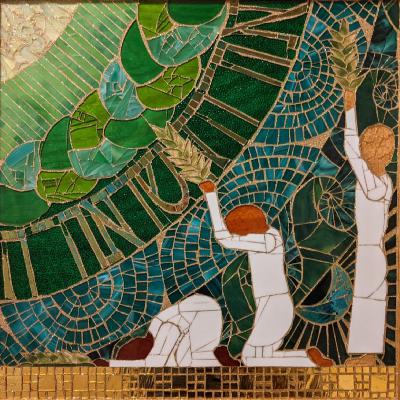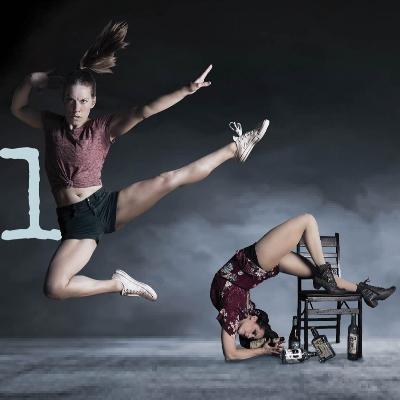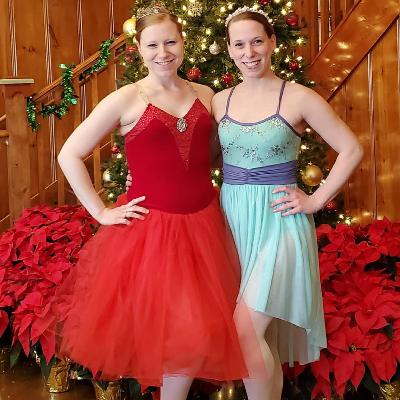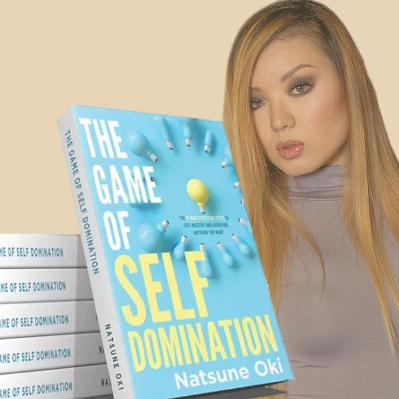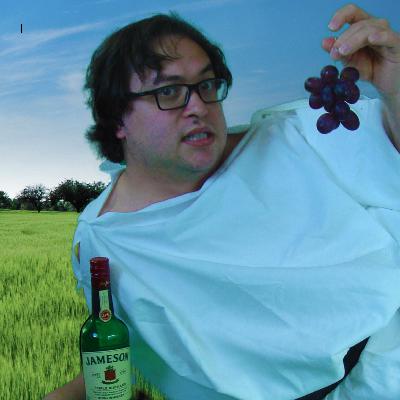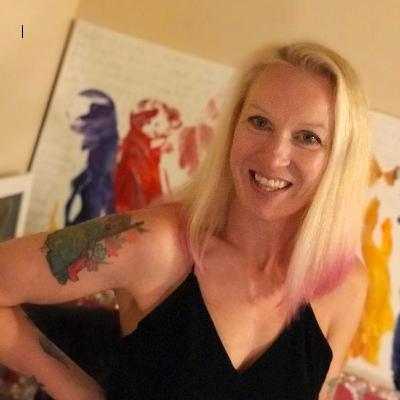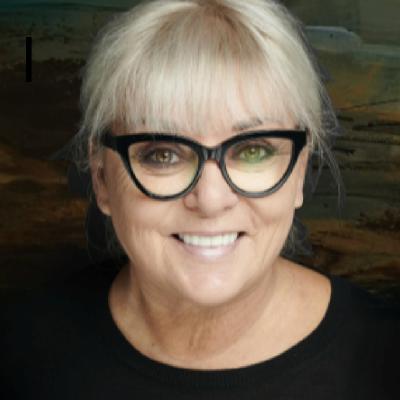Episode 078 - ”What‘s the Most Important Role of an Artist?” - Part 2
Description
In today's episode, I have compiled some of our more recent guests' answers to the question, "What is the most important role of an artist?" This delightful compilation brings a plethora of unique, honest, and inspiring answers to that question, and I'm excited to share part two of this series with you today. Enjoy!
Enroll in Lindsey's dance and wellness courses: www.elevateart.thinkific.com
Support Artfully Told: www.paypal.me/elevateart
Artfully Told links: www.facebook.com/artfullytold | www.artfullytold.podbean.com | elevateartskc@gmail.com
Get a free audiobook through Audible! http://www.audibletrial.com/ArtfullyTold
Schedule your own interview as a featured guest with Artfully Told! https://calendly.com/artfullytold/podcast-interview
Episode 78 - "What's the Most Important Role of an Artist? - Part 2
[00:00:00 ] Lindsey Dinneen: Hello and welcome to Artfully Told, where we share true stories about meaningful encounters with art.
[00:00:06 ] Krista: "I think artists help people have different perspectives on every aspect of life."
[00:00:12 ] Roman: "All I can do is put my heart in to the world."
[00:00:15 ] Elizabeth: "It doesn't have to be perfect the first time. It doesn't have to be perfect ever, really. I mean, as long as you, you're enjoying doing it and you're trying your best, that can be good enough."
[00:00:23 ] Elna: "Art is something that you can experience with your senses and that you just experience as so beautiful."
[00:00:31 ] Lindsey Dinneen: Hello, and welcome back to another episode of Artfully Told. I'm your host Lindsey, and I am delighted to be bringing you another special episode today. We are going to explore all of the different answers to the question, "what's the most important role of an artist?" Over the last year and a half I have gotten to ask that question of so many artists and guests that have been on my show. And I absolutely love hearing people's perspective on this question. So I'm excited to bring it all together for you in this special episode that I hope you thoroughly enjoy.
[00:01:11 ] Mike Huerter: Probably just be true to yourself. You know, you, you can't fake art. It's, I mean, yeah, I'm portraying a role in something, and I guess people would maybe think that's fake, but for me, I want to do it to the very best of my ability. I want people to--when they, when they look and see me doing something, they don't see me, they see the person or, you know, that I'm trying to portray.
[00:01:38 ] Gregg Gonzales: I think, I think it's to delight. Truly, I think it's to delight those, whether that delight can be in the form of, "I appreciate it. I think it's garbage. I think it's the greatest thing ever." I think it's to gain, to get a response from the people who are experiencing the art, whether it be music, whether it be a painting, whether it be a book. You want a response. You want, you want them to feel something. So to me as an artist, I want my people to, or I want the people who are experiencing my work to feel something. I know that sounds very general, but to me, it's about feeling.
[00:02:23 ] Jami Robben: I would say the most important role is probably sharing your gifts with others, just to again, make them happy. I think a lot of times are sometimes can be, you know, just kept to yourself if you're scared of showing other people. But the best thing you could do as an artist is share it and inspire others with it.
[00:02:44 ] JaJa Smith: To be honest, because we as people have dealt with enough bologna sandwich that, you know, it doesn't do anything for anyone, if you're just doing something for the sake of the adoration or the sake of a finished product. But if you're true and you're intentional and you're authentic, I mean, that is the product that people can truly get on board with. You know, I think that that is to not just to people, but also to the work itself, and then to the artists, because there have been a few times I may have flubbed or played it safer. And then, you know, I stepped back and the scene is over and, you know, I was just like, "What are you doing?" Like you, you know that you cheated yourself and you're like, "Why did I do that?" So the biggest thing to me is just be honest, be authentic with your work and everything that you do. You know, I don't see any need to talk about things that you don't understand. You know, like if, if you're a music artist, that's like, you know, tell your story. You know, you have a story. And it's beautiful. I mean, it's yours and it deserves to be told.
[00:03:49 ] Darnell Benjamin: I think the number one rule for an artist is to be honest. I think that, to be honest, whatever that means, to be honest.
[00:03:59 ] Emily Moores: I think that there are a lot of different kinds of roles for different kinds of artists. Like some artists have you reflect on, you know, historical events or connect you to maybe an idea or group of people that you wouldn't have a connection with. And I guess in any situation, whether, you know, like if I'm just creating artwork to be playful, I'm still creating a connection to this like physical, tangible object existing in space. And so for me, I would say artists create connections where we maybe haven't thought about them previously.
[00:04:39 ] Harlem Lennox: To be themselves and to be truthful about what it is that they are trying to convey, whatever it is, no matter how dark you might feel that it is, or no matter how light it is, because it just-- I feel like if you can feel something and you can get something, some type of meaning from whatever it is, then it is art. And so if you are making, whether it's a piece of music or painting, if you're dancing, whatever it is, if it has meaning, and it is true to you, then I think that is the response. That is the responsibility of an artist. I don't want an artist who tries to be the next whomever. I don't want an artist who, okay, what is everybody liking right now? Let me try to create that. And I understand that people got to do what they got to do to get where they're trying to go. And so maybe they start off that way because they're still learning. But when you get to a point where you're confident enough and brave enough to be able to produce your own work, your own truth, whatever is in your soul, then I definitely think that that people have a responsibility to bring themselves to the art world, because like I said, we need it. We don't need another Van Gogh. He's here. He did his thing. Thank you Van. But I want to see another whomever it is: Brittany, Sam, you know, Godfrey, whoever. Bring me your art, bring me your truth. Or else it doesn't mean anything.
[00:06:23 ] Christina Stanton: It's to tell their truth, because we all are having such different experiences in this world that what you want is that somebody is expressing your experience somewhere in art, doing something. And you just want to connect with art that's expressing your particular experience that you're having on this planet and is sharing your human experience. And so I just think artists should be telling their truth of how they're viewing the world and their experience, because there's going to be people out there that can relate and want to relate and want that comradery, and wants somebody to quote unquote, "understand them," but I just feel like it's a shared experience. So it's a story that, that can be shared with several people. We're not all having the same experience, but there are people out there who are having, you know, the same struggles, and the same highs and lows and joys. And they're looking at life in the world and God, and in the same way, do you want to connect to art that is speaking to you personally.
[00:07:33 ] Jeffrey Holst: I think that artists bring perspective to everything. If we didn't have artists, our world would be very boring. So I think perspective and entertainment are probably the two things that are most important.
[00:07:49 ] Lucas Zellers: The role of an artist is to tell us what to think about. And I think my experience with monsters and the study of them and sort of the practical use of monster theory is that art gives us a way of saying things that we couldn't say, or feeling things that we couldn't feel or experiencing things that we had no other way to experience.
[00:08:13 ] Kristin Beale: The important role: to entertain and not to entertain others for that is a big plus, but to entertain yourself, to keep yourself happy to stay while you're doing it for it to be a good, you know, way to keep yourself happy. And, you know, it's a major plus if it can bring happiness to other people too.
[00:08:34 ] Doug Motel: Well, I think the, the role of the artist is to lead us in our evolution. I think that you know, Darwin pointed out that we evolved from creatures in the sea, you know, we keep evolving and I think that there's an assumption that evolution is just kind of like on autopilot, but I don't. I believe that we could actually hasten the pace of our evolution. We can you know steer and direct our evolution and the ones that do that are the artists. So the role of the artist is nothing short of saving humanity.
[00:09:15 ] Gloria Grace Rand: Well, the most important role-- I think it's just being true to who you are and to trust yourself to be able to communicate whatever it is that you want to communicate. Because if you're going abo




